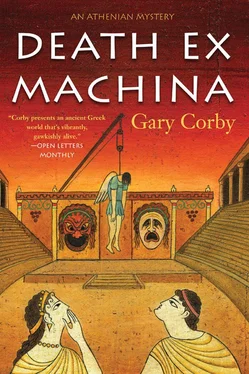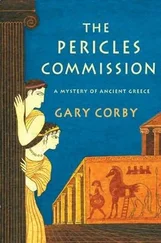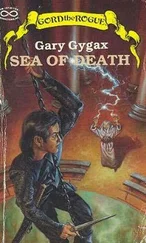Gary Corby - Death Ex Machina
Здесь есть возможность читать онлайн «Gary Corby - Death Ex Machina» весь текст электронной книги совершенно бесплатно (целиком полную версию без сокращений). В некоторых случаях можно слушать аудио, скачать через торрент в формате fb2 и присутствует краткое содержание. Год выпуска: 2015, ISBN: 2015, Издательство: Soho Press, Жанр: Исторический детектив, на английском языке. Описание произведения, (предисловие) а так же отзывы посетителей доступны на портале библиотеки ЛибКат.
- Название:Death Ex Machina
- Автор:
- Издательство:Soho Press
- Жанр:
- Год:2015
- ISBN:978-1-61695-520-5
- Рейтинг книги:3 / 5. Голосов: 1
-
Избранное:Добавить в избранное
- Отзывы:
-
Ваша оценка:
- 60
- 1
- 2
- 3
- 4
- 5
Death Ex Machina: краткое содержание, описание и аннотация
Предлагаем к чтению аннотацию, описание, краткое содержание или предисловие (зависит от того, что написал сам автор книги «Death Ex Machina»). Если вы не нашли необходимую информацию о книге — напишите в комментариях, мы постараемся отыскать её.
Death Ex Machina — читать онлайн бесплатно полную книгу (весь текст) целиком
Ниже представлен текст книги, разбитый по страницам. Система сохранения места последней прочитанной страницы, позволяет с удобством читать онлайн бесплатно книгу «Death Ex Machina», без необходимости каждый раз заново искать на чём Вы остановились. Поставьте закладку, и сможете в любой момент перейти на страницу, на которой закончили чтение.
Интервал:
Закладка:
“What do you do when you don’t have work?” he countered.
It was a good point.
“So no plans to return to Phrygia?” I said.
Romanos laughed.
I tried to estimate the age of Romanos, but it wasn’t easy. He was one of those men who could be an old-looking twenty-five or a young-looking thirty-five. There were lines of experience about his eyes, but I guessed that he’d had a hard life and he could have acquired those at an early age.
Romanos looked out from our shelter, into the pouring rain.
He said, “I would like to be a citizen of Athens one day.”
That made sense to me. Who wouldn’t want to be a citizen of Athens? Yet Phrygia was a long way away, and I couldn’t imagine a man willing to abandon his homeland without a good reason.
I asked, “Would it help you?”
Romanos looked surprised. “Of course it would. Citizens get all the best parts.”
“You’re second actor now,” I pointed out.
“Because Phellis had his accident.” Romanos frowned. “And before that I was only third actor because Aeschylus and Chorilos had already snapped up the two best third actors who happen to be citizens.”
“Sophocles seems to like you,” Diotima said. “I heard him say Romanos is a good actor.”
Romanos said in a harsh voice, “Romanos is the man Sophocles calls for when he’s run out of other good options.” Then he shrugged, an actor’s expressive shrug of despair. He said, “The fact is, if I’m to get ahead in my profession, then I must become a citizen.”
“My father became a citizen,” Diotima said. “And he used to be a slave.”
“He was? He did?” Romanos looked down at Diotima in some surprise. “How? How did he do it?”
“Through his enormous merit,” I said. Because I was proud to be the son-in-law of Pythax, though some might call him a barbarian.
Romanos said, “Your father is that impressively large barbarian whom I saw with you, once or twice at the theater?”
“Yes.”
“What did a barbarian do to deserve such elevation?”
“Have you noticed how little crime there is on the streets of Athens?” I asked.
Romanos thought about it. “Now that you mention it, Athens does seem safer than most cities.”
“You have Pythax to thank for that,” I said.
“Oh, I see.”
Romanos questioned Diotima closely as to how Pythax had come by his citizenship. What the process had been and whether anyone had objected. It was an odd place for such a conversation, the three of us all facing each other, squeezed together, other men pressed against us in every direction. But the sound of the rain was loud in our ears; from where it bounced off the tile slate roof above our heads, I could barely hear the words of the men talking right next to us. Our conversation was essentially private.
Pythax had been made a citizen by acclamation of the ecclesia , the Assembly of the People of Athens. When Diotima explained this to Romanos, he looked despondent and said that no assembly of citizens would ever vote for him to join their number.
“Is that really so, Romanos?” I said. “You’ve been a great help to Sophocles. You’ve become instrumental in saving the Dionysia. If men see that you do great service to Athens, might they not think you also worthy of citizenship?”
He brightened. “Yes, I suppose that is possible. I wonder who might sponsor me for citizenship?” He went into a reverie, no doubt contemplating his future, and said little else.
The moon was high in the sky by the time the rain slackened and a few gaps in the clouds appeared. Men scattered from under cover like ants from a nest. It was very late when Diotima and I made it home, so late that my parents and even the slaves had gone to bed, leaving only one slave awake to open the door for us. This he did, grumpily pointing out how late it was, then he too shuffled off to his bed out the back.
Our clothes were a disaster. We dropped them on the floor by the door. It was too dark to do anything else. This left us naked, standing at the front of the house, with Socrates snoring not twenty paces away.
We tiptoed up to the women’s quarters, where Diotima had a private bedroom. When Diotima had joined the family I’d built her a separate room so that she and my mother would have some privacy from each other.
We closed the door behind us.
“There’s no point waking your mother for some ointment,” Diotima said. “The rain will have cleaned the bite anyway … but perhaps some light massage.”
“Good idea.”
Diotima felt below.
“Nico, it’s swollen from the bite.”
“Diotima, that swelling is for a different reason.”
She felt again.
“Oh, so it is.”
She dragged me down onto the bed.
SCENE 11
Diotima and I had barely slept, but for all that we felt refreshed. We ate a hearty breakfast, of yesterday’s bread dipped in wine, lentils and eggs from our farm. The eggs were a luxury few could afford. The whole family was present: my father and mother and Socrates, who was still puzzling over the machine.
Socrates had reached the age where he ate everything he could grab, and then some. As he filled his bowl with third helpings he demanded that we tell him what had happened at the theater. Diotima brought him up to date.
Our father, Sophroniscus, listened to Diotima without comment. He had eaten sparingly of his bread and wine. I was happy to see he popped half an egg into his mouth, and then the other half.
My father had never become reconciled to my chosen profession-he had wanted me to follow in his footsteps-and yet it was my work that had brought the farm into the family, small though it was. It pleased me that he enjoyed its produce.
Thought of this raised another point to mind.
“Father, we have a problem,” I said. “There are mice in Diotima’s house.”
“Find a cat,” he said absently. I could tell he wasn’t paying attention. In his mind he was probably planning his day’s work.
“They’re in the roof.”
That made him look up. He knew what mice in the thatching meant.
I detailed the extent of the damage.
“We will have to sell the house,” my father said.
I glanced at Diotima. She looked studiously down at her bowl.
“I’d rather not, sir,” I said, somewhat hesitantly. Father had not been keen for me to marry Diotima in the first place. Having won that major battle and installed her in my life, I hesitated to antagonize my father over a lesser disagreement.
Sophroniscus put down his bowl. “Son, I know you like the place, but a house that doesn’t pay, that we don’t need, that’s costing us money … it’s a drain on the household finances. I’m sure you understand. That old house needs a lot of maintenance, doesn’t it?”
“Yes, but-”
“I know you’ve tried to make it pay,” he said. “The renting scheme was a good idea-”
“Yes, but-”
“But it hasn’t worked out, has it?”
“No, but-”
“Sometimes the best thing to do is accept a defeat and move on. You’ve done well with this career of yours, I admit it. I’m proud of you.”
Father was being reasonable. I hated that.
For so long as he lived, my father was responsible for our family, and I was a child in the eyes of the law. If he’d simply ordered me to sell the house, I could not have refused. But Father wasn’t going to order me. Instead he was going to make me see reason.
My mother, Phaenarete, had listened to all this in silence. Phaenarete never questioned her husband in front of us. She had other ways of expressing her viewpoint, typically by failing to offer an opinion whenever Father said something of which she disapproved. Phaenarete’s silence could be more devastating than other wives who threw plates. I hoped that she would keep a studious silence, or perhaps even say a few words in my support.
Читать дальшеИнтервал:
Закладка:
Похожие книги на «Death Ex Machina»
Представляем Вашему вниманию похожие книги на «Death Ex Machina» списком для выбора. Мы отобрали схожую по названию и смыслу литературу в надежде предоставить читателям больше вариантов отыскать новые, интересные, ещё непрочитанные произведения.
Обсуждение, отзывы о книге «Death Ex Machina» и просто собственные мнения читателей. Оставьте ваши комментарии, напишите, что Вы думаете о произведении, его смысле или главных героях. Укажите что конкретно понравилось, а что нет, и почему Вы так считаете.












